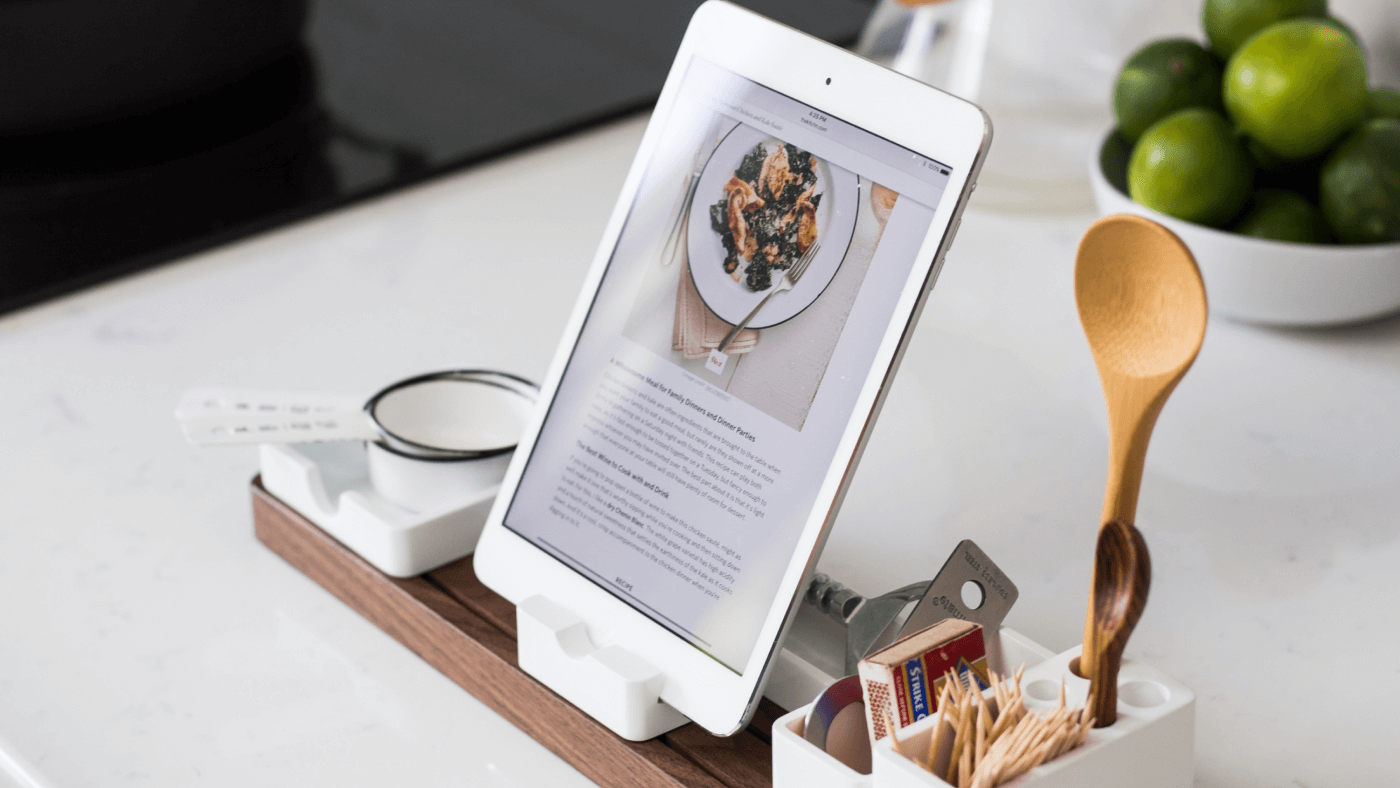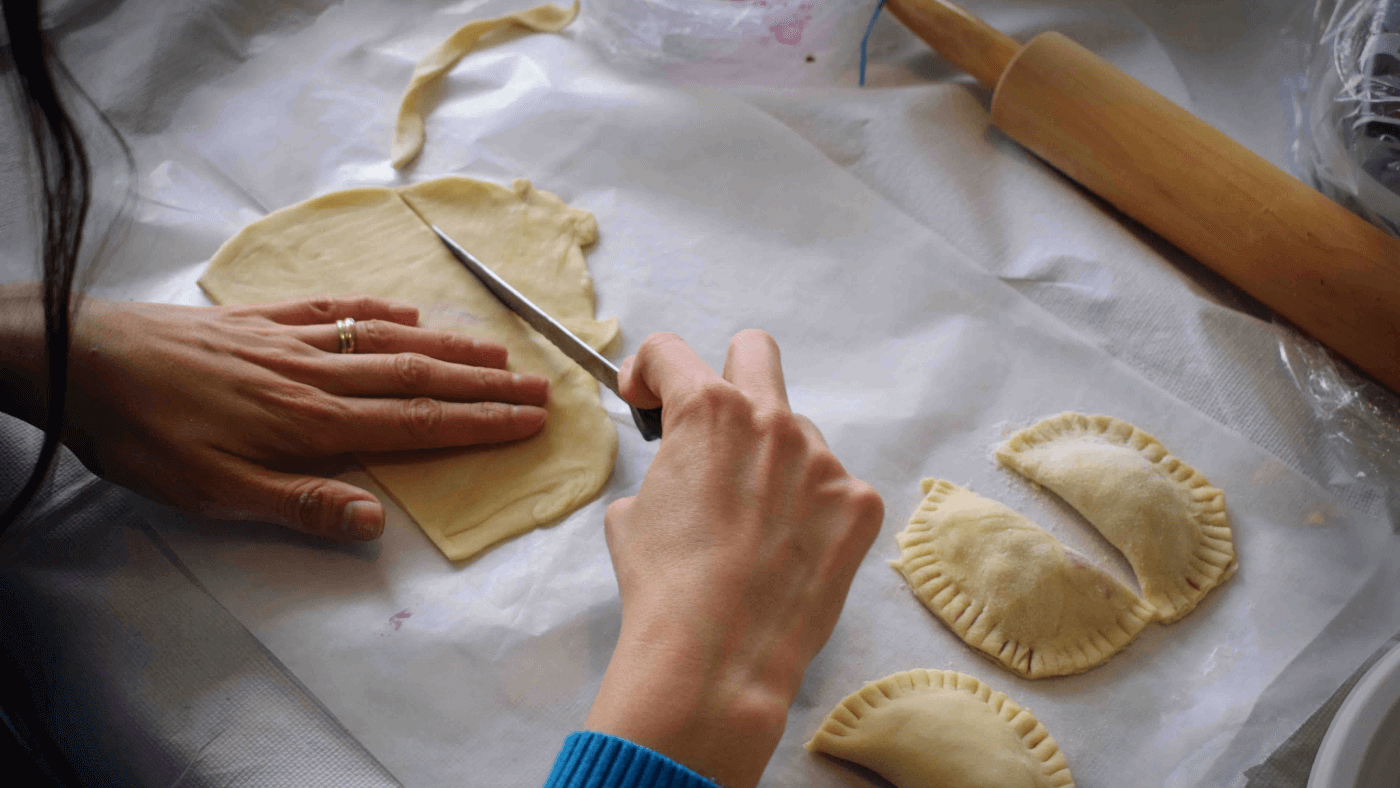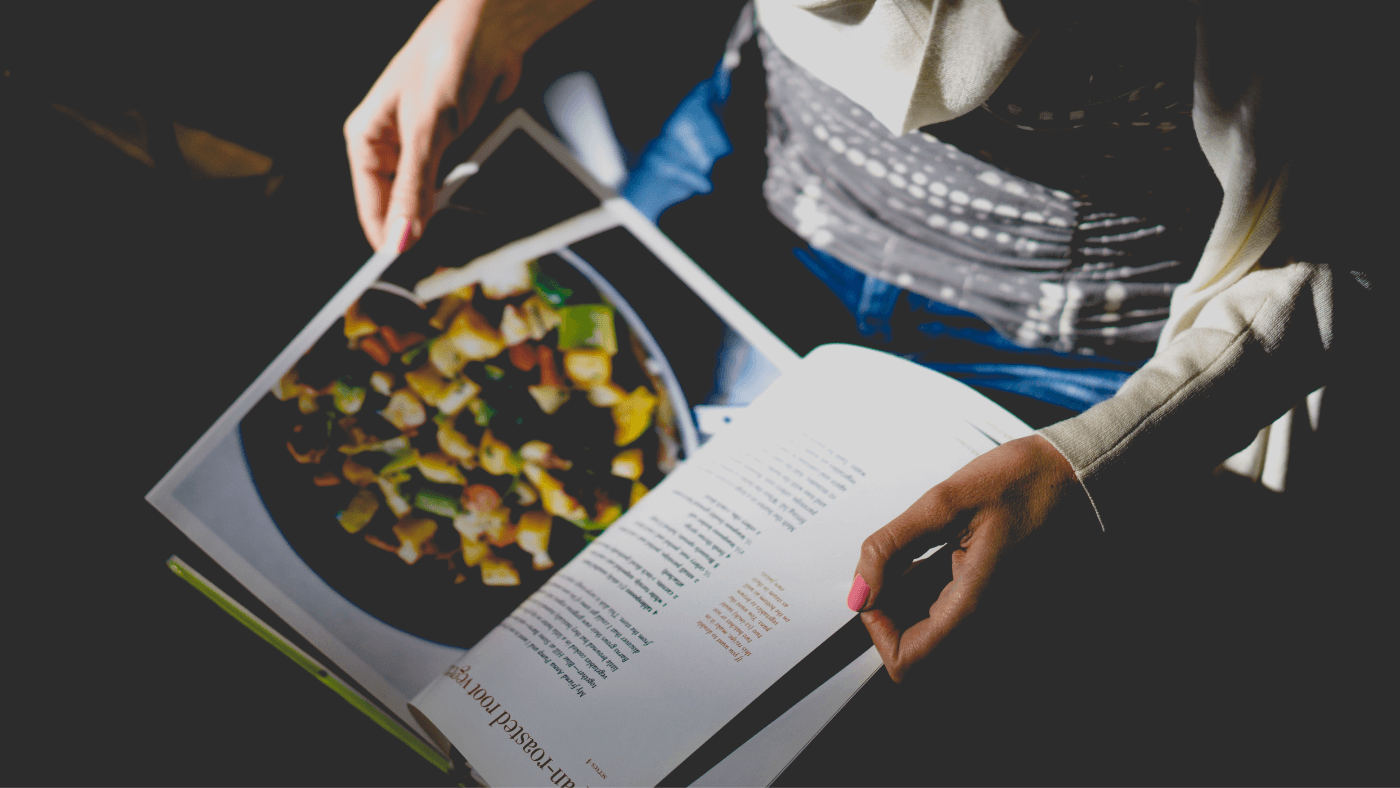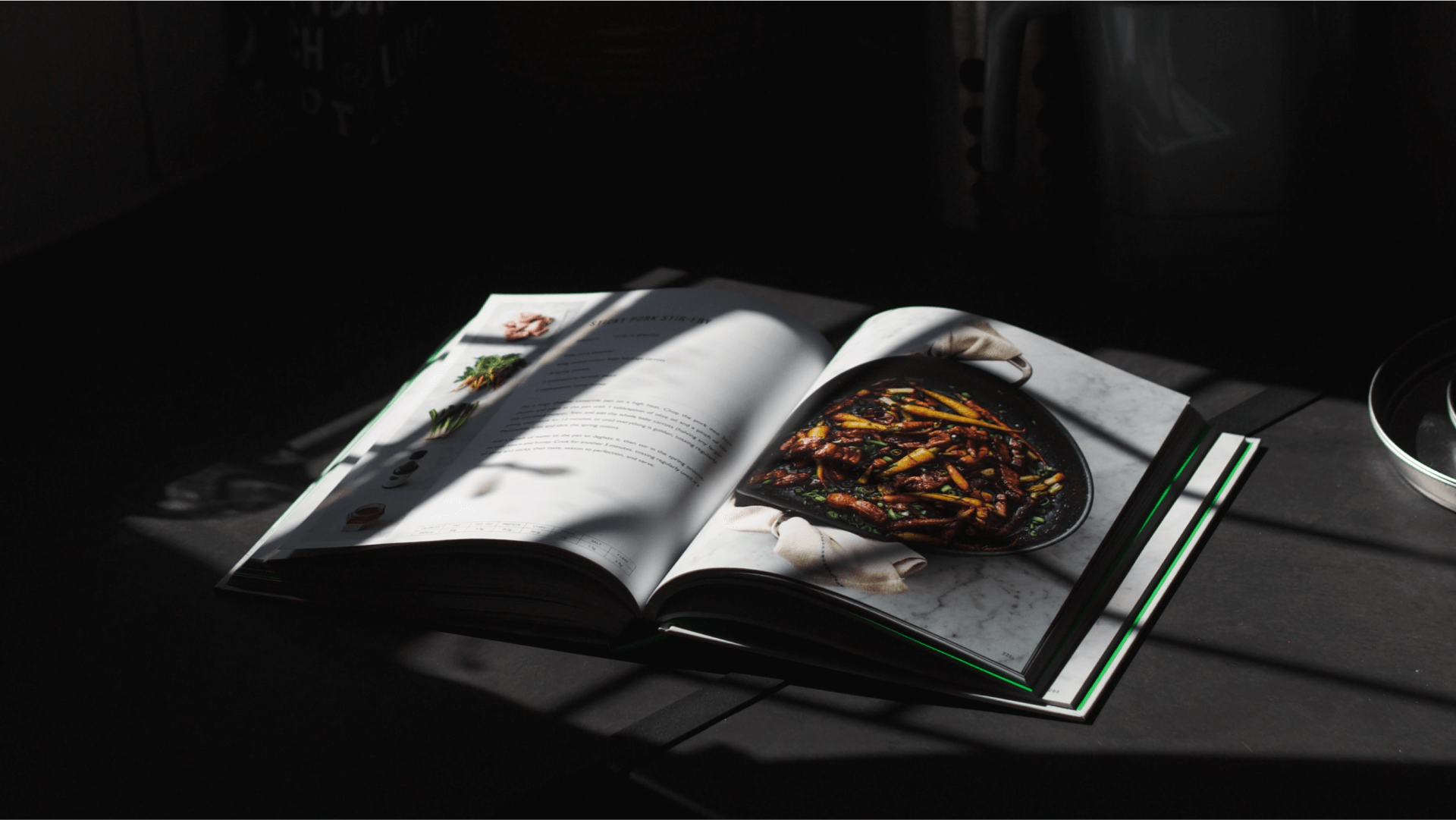Recipe books have been around in some format since at least 1900 BC. One of the oldest known written records was preserved in an ancient Egyptian tomb, providing instructions for making flatbread for the cooks of the afterlife. Fast-forward roughly 4,000 years, and printed recipe books are ubiquitous household items.
Will recipe books ever be redundant?
In recent years, cookbooks have become almost old-fashioned in the face of the multiple digital options at our fingertips. Recipes once reverently passed down through generations are now accessible via a quick internet search – and in your preferred format; be it a food blog, YouTube video, Pinterest pin or the latest TikTok recipe sensation. Even cooking shows have taken a backseat these days.

Image: Unsplash, Jeff Sheldon
Recipes once reverently passed down through generations are now accessible via a quick internet search. – Caitlin Kennedy
It is highly practical to have multiple sources of inspiration for basically any cuisine or ingredient at a moment’s notice. I know I find myself searching for a recipe online more often than paging through a printed reference. This is a slightly uncomfortable realisation, as I love cookbooks and would hate to think that I am contributing to the decline of the industry.
Book sales, in general, have certainly decreased over the years, as people turn to e-book versions, or spend more leisure time on series and other digital pursuits. However, I was happy to learn during my research that this is not the case in the cookery genre.
On average, recipe book sales have been steadily increasing globally over the past 10 years. In 2022, purchases in the US were up 42% from 2021, according to NPD BookScan. – Caitlin
For me, as relieving as this is, it also makes sense. While the efficiency of online recipes can’t be denied, they don’t always scratch the same itch.While perhaps the easiest source for recipes, food blogs can be extremely annoying. The prospective cook is obliged to scroll wearily past stories of long-lost aunts to find the relevant content. This comes across, at best, as a ploy to recreate the magic of paging through a beautiful book or, at worst, a weak attempt at authenticity. Cooking videos, on the other hand, while effective at teaching techniques, aren’t as useful as step-by-step manuals. (Incidentally, the best compromise I’ve seen to address this is in Molly Baz’s release “Cook This Book”, which includes Handy QR codes that link to videos teaching specific skills).

Image: Unsplash, Kristina Tripkovic
All the top restaurants I’ve worked in have substantial kitchen libraries. In my experience, the process of menu design and recipe creation often begins with paging through books by respected chefs for inspiration. Prestigious restaurants tend not to release their recipes on a digital platform, but will often release a coffee table-style masterpiece.
There is a sense of excitement in opening up a crisp new book. It is in its own way a multisensory experience: the smell, the texture of the pages, and the memories preserved in stains and worn corners.
I actually relish the odd oil spatter or crust of spice, as they tell a tale that adds to the overall story of the book. – Caitlin

There is a lazy, luxurious feeling to idly paging through a beautiful publication that I never experience on a digital platform, and a sense of appreciation for the artwork that many of these amount to. This will keep recipe books relevant no matter how many easier and cheaper sources there are
5 recipe books I’m loving right now
If you, too, are a recipe book lover, check out some of my favourite new releases for your fix of culinary inspiration:
- The Flavour Thesaurus: More Flavours: Plant-led Pairings, Recipes and Ideas for Cooks, by Niki Segnit
- East, by Meera Sodha
- Salt, Fat, Acid, Heat: Mastering the Elements of Good Cooking, by Samin Nosrat
- Vegetable Revelations: Inspiration for Produce-Forward Cooking, by Steven Satterfield
- Cape Wild Foods: A Cook’s Guide, by Loubie Rusch



0 Comments